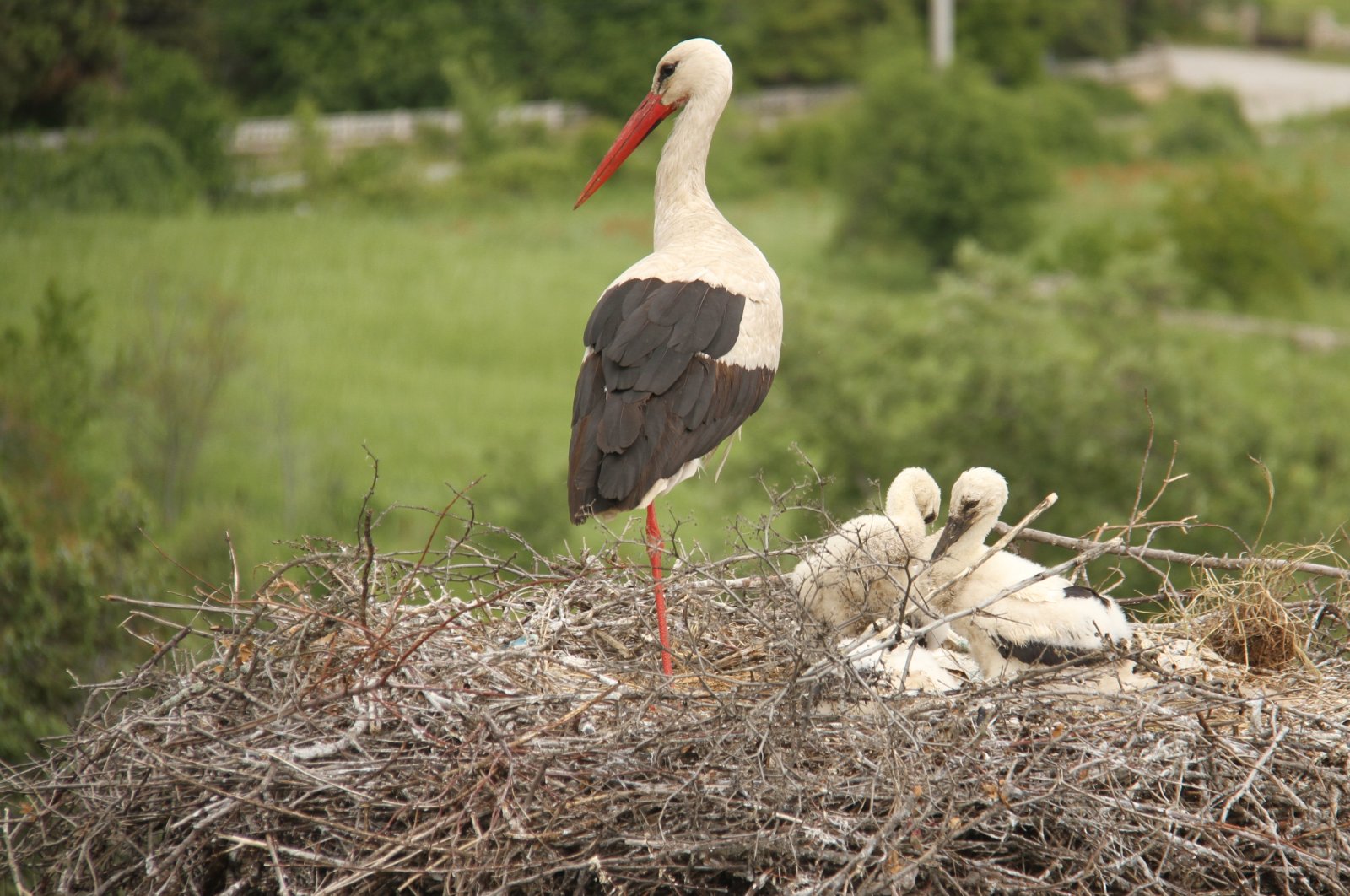
The "stork valley" in Beyşehir district of Türkiye's central Konya province has witnessed a remarkable surge in its stork population this year owing to increased precipitation that has expanded the variety of food, a biology professor from a local university noted Sunday.
Nesting in the juniper trees, the stork colony arrived in the valley early in March and successfully completed their breeding season around Beyşehir Lake National Park.
Professor Musa Dikmenli, head of the Biology Education Department at Necmettin Erbakan University's Faculty of Education, shared his observations with Anadolu Agency (AA), explaining that the storks diligently collect food from both the fields and wetlands, transporting it back to their nests.
The presence of storks was in particular observed in the locations dubbed "stork valley" and "stork hill" around the Yeşildağ and Adaköy districts.
Storks feed their young from wetlands, especially around the lake.
Highlighting that the juniper trees are the primary places where the storks build their nests, Dikmenli noted that the increase in population was observed following the increase in overall rainfall this year.
"Beyşehir Lake and its surroundings were affected by extreme droughts in previous years," he said, underlining the storks' reliance on water sources.
"Storks feed mostly on small organisms living in the water. They also gathered more quickly and set up their colonies and nests as there were more suitable nutrients. We can say that there has been a significant boost in stork numbers," he explained.
Stating that the "stork valley" and "stork hill" are home to important stork colonies in Türkiye, Dikmenli said that this year they observed larger numbers of storks breeding and generally laying three to four eggs.
"As the amount of nutrients increased, we see the number of storks rise. A rise in black storks was also observed. This is one of the species rarely seen in our country," he further noted.
Dikmenli mentioned that although there has not been a rise in the number of birds, there has been an increase in the variety of species observed. According to him, the growing awareness in recent years has led to an understanding that refraining from interfering in the natural lives of animals actually aids in boosting their populations.
